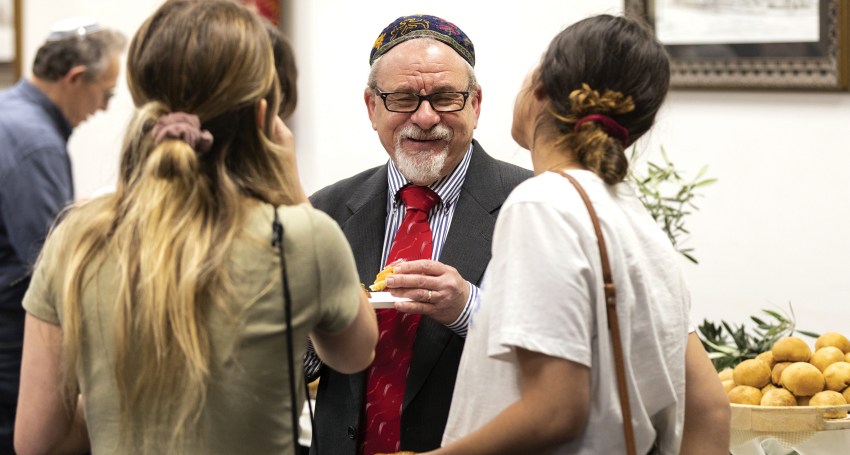Questions of identity
Opinion
I had an interesting conversation at the wedding of a friend’s daughter recently. She was marrying a Jewish lawyer from Melbourne and the father of the groom was a lovely soul who was delighted to learn I had spent time on an Israeli kibbutz in my early twenties.

He was acutely aware of his Jewish heritage and proudly told me of his work as a volunteer at the Holocaust Museum in Melbourne. The genocide of the Jewish people is close to home for him; his mother and her parents were in Birkenau – the parents were executed but his mother survived and was 14 when the camp was liberated.
But when I asked about his religious beliefs, he described himself as a Jewish atheist, which gave rise to a somewhat perplexing discussion about how someone can be a Jew but not believe in God. Wasn’t the Jewish culture and heritage innately linked to Judaism? If you take away the Judaism, how do you hold on to your Jewish heritage? What happens to the Jewish bloodline in mixed marriages where there is no inclination to raise the children in the Jewish faith?
Advertisement
These were my questions to which he was honest in saying he didn’t have the answers, and he was genuinely troubled by this.
Just as many Christians celebrate Christmas and Easter, Peter explained that his family always gathered for Passover and Rosh Hashanah, but there were no Bar Mitzvahs or worship in the synagogue.
I likened this to Catholics who only attend Mass at Christmas and Easter but I also said I didn’t think there would be too many Catholics – even the most lapsed – who would still call themselves Catholic if they didn’t believe in God. They certainly wouldn’t identify as strongly with being Catholic as a Jewish atheist would with being Jewish.
As Father Michael Trainor, from the Australian Council of Christians and Jews, rightly pointed out to me, what many Christians don’t understand is that there is both a cultural and a religious element to Judaism, and in some cases a mix of both, therefore a Jewish person’s identity is not bound to religious belief.
For example, when I lived in Israel I met many young Zionists who were anti-religion and yet they were staunchly proud of their Jewish ancestry and would not want to be defined as anything other than as a Jew.
Advertisement
Peter told me that his daughter had married into a family whose faith was important to them and that her children were attending a Jewish school. He was clearly quite chuffed that his grandchildren were learning Hebrew and were being exposed to Judaism, despite his own lack of belief.
(Even his son’s very secular wedding included some traditional Jewish dancing and chair lifting of the bride and groom!)
But he also expressed concern that ultra-Orthodox Jews were responsible for the highest birth rates of Judaism denominations around the world.
Here in Adelaide the Jewish community is smaller and less visible than in Melbourne and Sydney but that doesn’t mean we should not be engaging with its members and having conversations about some of the challenges we all face as faith communities.
My talk with Peter not only enhanced my understanding of what it means to be Jewish but also prompted me to reflect more deeply on my own faith and made me appreciate the efforts of our local Church in reaching out to other religions and Christian denominations. Archbishop Wilson’s facilitation of the establishment of a Holocaust museum in one of our most historic Catholic buildings, Fennescey House, is but one example.








Comments
Show comments Hide comments